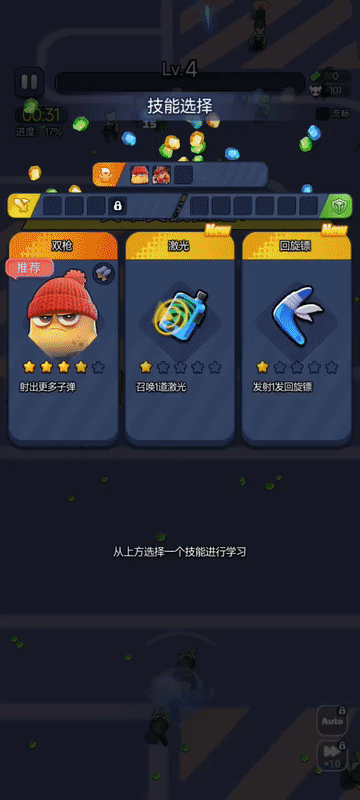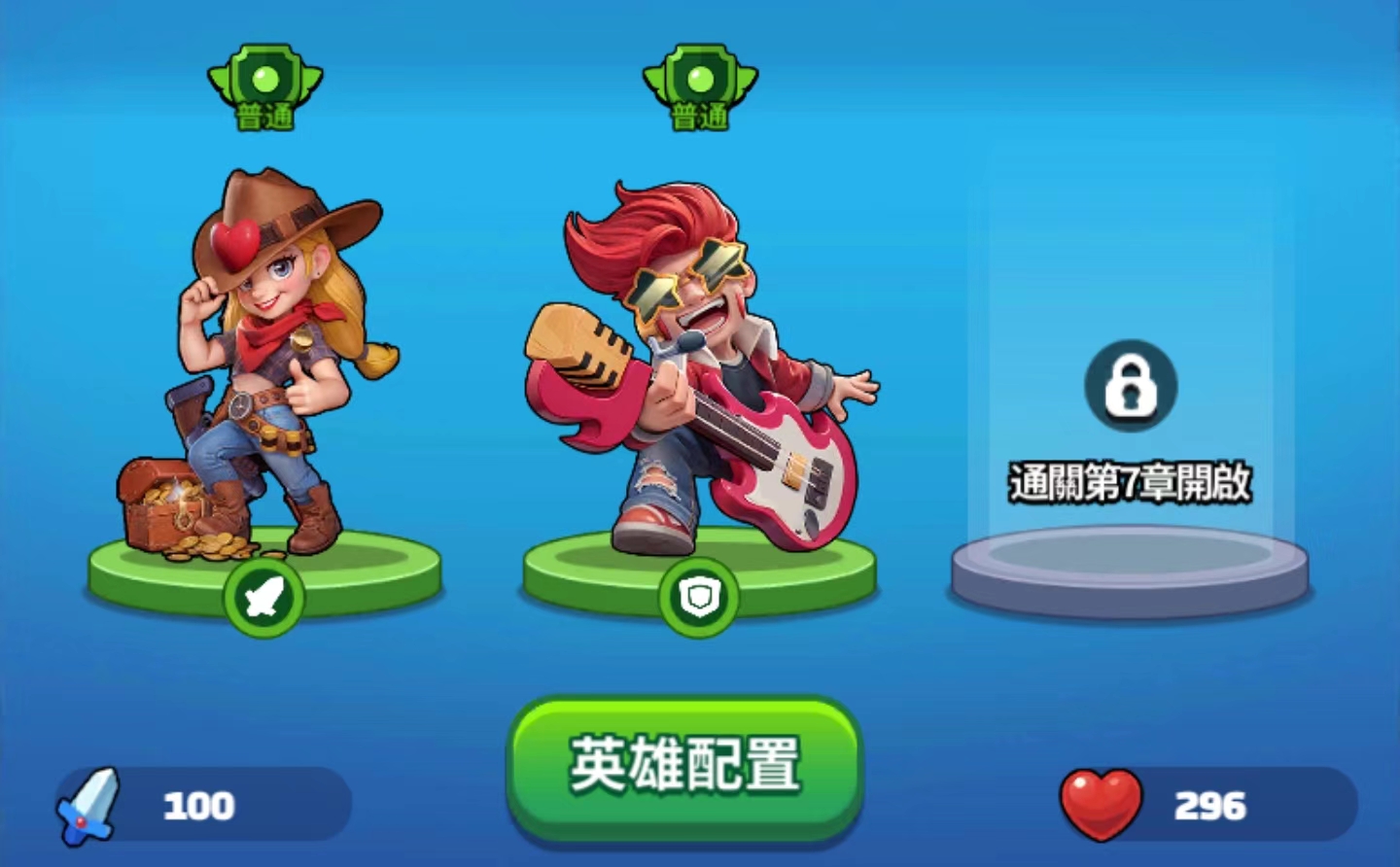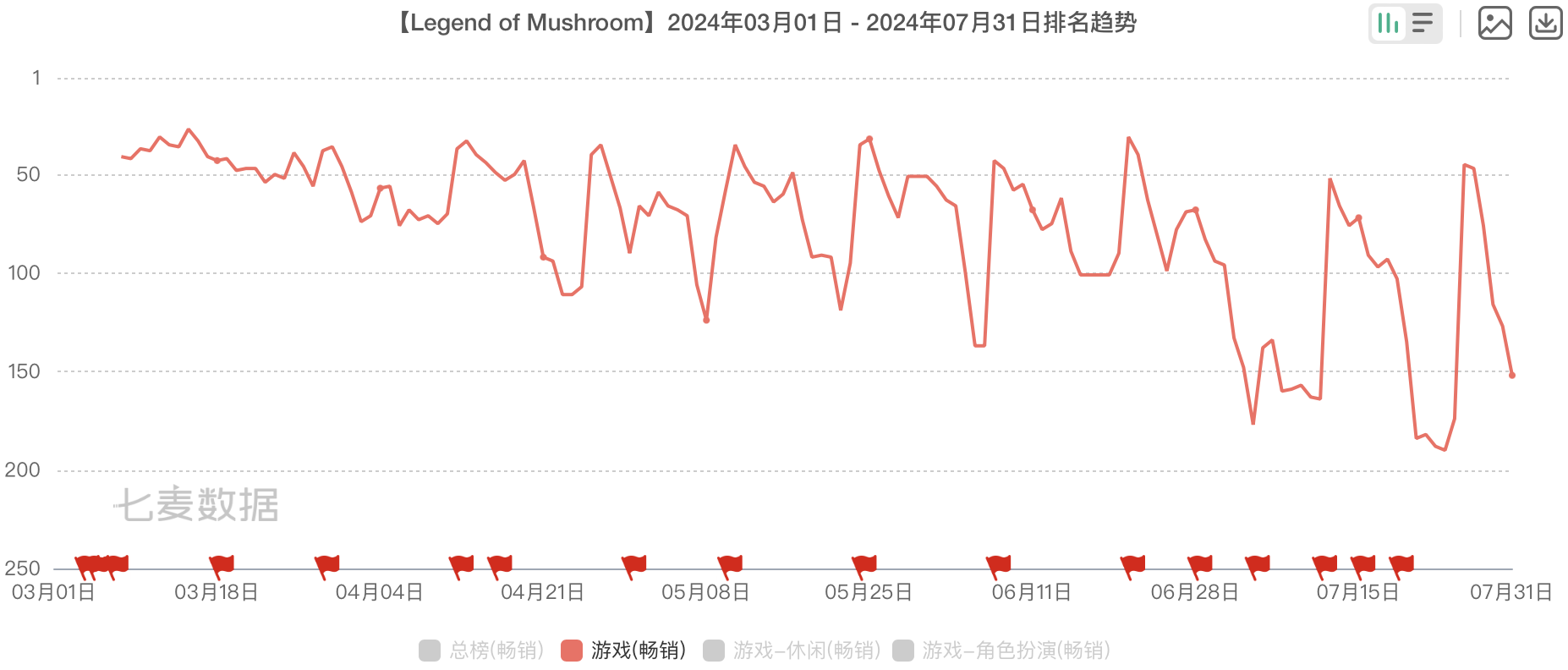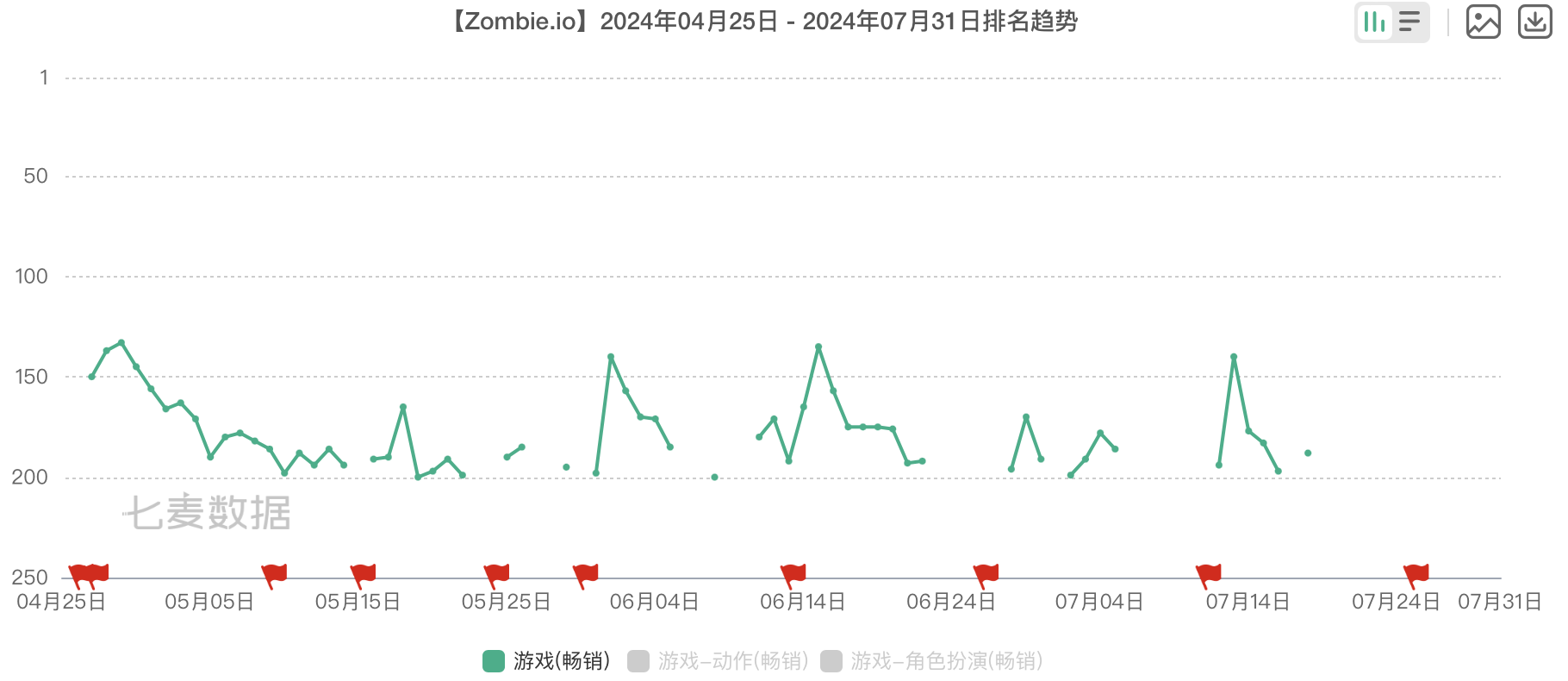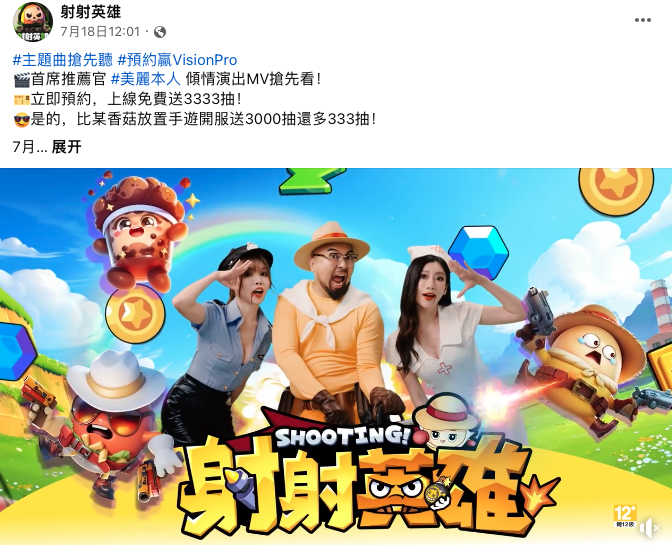The recent surge in the popularity of mini-games worldwide can largely be attributed to the success of Legend of Mushroom.
According to diandian data, in the first half of this year alone, 17 successful mini-games generated over $470 million in revenue (Excluding the Chinese Mainland Market), with Legend of Mushroom alone accounting for $387 million.
4399's overseas business has significantly benefited from Legend of Mushroom. Sensor Tower data indicates that following the game's release, 4399's ranking on the global revenue chart for Chinese mobile game publishers soared, reaching a peak position of sixth. At one point, Legend of Mushroom contributed more than 85% of 4399's overseas income.
Capitalizing on this momentum, 4399's publishing brand, Joy Net Games, launched two new mini-games earlier this year: Merge Night Live, a dress-up and merge game, and Zombie.io, a shooting and roguelike game.
However, neither game gained significant traction until recently, when 射射英雄 launched in Hong Kong, Macau, and Taiwan, achieving the top position on Taiwan's iOS game sales chart and sixth in Macau.
This raises the question: following the success of Legend of Mushroom, is 4399 poised to once again dominate the mini-game market? What exactly is 射射英雄, and what did 4399 do right this time in Hong Kong, Macau, and Taiwan?
1.Initial Launch in the West
It turns out that 射射英雄 is essentially the Hong Kong, Macau, and Taiwan version of Zombie.io. In mainland China, it's known as 明日特攻队, a mini-game by Guangzhou Yinhan Games.
The game uses a classic post-apocalyptic zombie theme and features 3D Western cartoon-style graphics. Notably, the protagonist is a uniquely designed potato with a hardcore image, creating an intriguing contrast that easily leaves a lasting impression.
Gameplay-wise, the game introduces a squad concept within the shooting and roguelike framework. In each session, besides controlling the potato protagonist, players gain additional heroes as team members over time to combat the zombie horde.
Later levels allow players to unlock up to three hero slots. Each hero has unique attack styles, skills, and effect enhancements, offering players various team composition choices and expanding the game's strategic and development depth.
In April of this year, 4399 first introduced Zombie.io to the Western market. Although Hong Kong, Macau, Taiwan, and Japan-Korea are more familiar territories for 4399, they opted to enter the Western market first. This decision likely considered the theme's market compatibility and the company's recent breakthrough in Western markets.
The month before Zombie.io's launch, 4399 released Legend of Mushroom in the Western market. Fueled by aggressive advertising, the game quickly topped the free game charts on iOS in countries like the US, France, and Germany and achieved impressive sales, breaking into the top 30 on the US iOS game sales chart.
Seizing the momentum, 4399 likely aimed to test their strategy in the Western market further by launching Zombie.io, which had a more advantageous theme.
Reviewing the advertising strategies for Legend of Mushroom and Zombie.io in the West, data from AppGrowing indicates that both games primarily targeted the US, France, and Germany.
The resources were concentrated to achieve a burst of activity at launch, maintaining a relatively stable advertising volume for some time. It's fair to say that both products followed a similar distribution strategy.
However, despite Zombie.io's initial success on the free game charts in countries like the US, France, and Germany, its sales did not match Legend of Mushroom's brilliance. In countries like France and Germany, the game managed to break into the top 50 of the iOS game sales charts, but in the critical US market, it hovered between 150 and 200.
While Zombie.io's post-apocalyptic theme and 3D Western cartoon style naturally resonate with Western markets, this also means intense competition for this genre and art style. Standing out requires not only product quality but also excellent localization.
Although the game attempted community marketing during its 2023 testing phase, the results indicate that the official content output was not sufficiently targeted. Most content centered around character introductions, world-building, events, and maintenance updates.
Currently, Zombie.io's daily advertising volume has decreased from nearly 1,800 units to under 500 units. However, this doesn't mean that 4399 has given up on the product. Legend of Mushroom's current daily ad count is also in this range, indicating that this is simply a standard resource allocation during a stable period.
4399 may still be waiting for a breakthrough opportunity for Zombie.io, but before such an opportunity arises, the game has relaunched as 射射英雄 in Hong Kong, Macau, and Taiwan.
2.Localized Marketing in Hong Kong, Macau, and Taiwan
In the more familiar Hong Kong, Macau, and Taiwan markets, 4399 clearly had more freedom. According to AppGrowing, on June 21, 射射英雄 began pre-registration, and 4399 started its advertising campaign.
Interestingly, the scale of advertising for 射射英雄 in Hong Kong, Macau, and Taiwan significantly differed from that of Zombie.io in the West. The former's highest daily advertising volume never exceeded 400, whereas, even when considering only the three main markets of the US, France, and Germany, the latter's peak daily advertising volume exceeded 1,000 and remained around 600 units for about a month after launch.
At first glance, this seems to contradict the idea that 4399 has more leeway in Hong Kong, Macau, and Taiwan. However, it actually reflects the fact that the Western market received more resources, indicating 4399's reliance on advertising to attract users in these regions.
In simpler terms, in the relatively unfamiliar Western market, Although 4399 has adopted large-scale advertising, its approach is relatively uniform. Meanwhile, in Hong Kong, Macau, and Taiwan, based on their understanding of the market and users, 射射英雄 benefited from more refined marketing strategies, with the most notable aspect being KOL (Key Opinion Leader) marketing.
While KOL marketing is no longer novel, it remains crucial for 4399. In a media interview, their overseas publishing director emphasized that users are becoming less responsive to traditional advertising and are more likely to trust recommendations from KOLs. As a result, they allocate more budget to KOLs.
When Legend of Mushroom launched in Hong Kong, Macau, and Taiwan, 4399 collaborated with numerous KOLs. This approach continued with 射射英雄, which partnered with various local KOLs, even featuring them in the music video for the game's theme song.
射射英雄 collaborated with KOLs from multiple fields, including tourism, food, cosplay, game streaming, and online celebrities, aiming for comprehensive penetration to reach different user demographics and achieve a broad appeal.
Another advantage of KOL marketing is that much of the marketing material can be repurposed for advertising, such as editing gameplay videos, live streams, or skits into ads. AppGrowing's data monitoring confirms that 4399 has indeed used similar content for advertising in Hong Kong, Macau, and Taiwan.
For instance, one ad directly used clips from the theme song music video as ad material. The actors' exaggerated and quirky actions, combined with a catchy tune and benefits like character and pet giveaways, effectively conveyed the game's lighthearted and quirky nature.
Recognizing the preference for humorous and quirky videos among Hong Kong, Macau, and Taiwan users, 4399 also released some videos with a "wild" approach. For example, they had attractive KOLs deliver misleading lines based on the game's name, 射射英雄, to catch players' attention.
In addition to KOL marketing, 4399 also implemented localized details. While Zombie.io retained the protagonist potato from Tomorrow's Special Forces, it was replaced with a stewed egg in 射射英雄, catering to Taiwan's preference for braised foods, especially eggs.
Other common mini-game strategies, such as gameplay guides and high-reward marketing, were also employed but are not elaborated on here. Ultimately, 4399 leveraged its insights into Hong Kong, Macau, and Taiwan users, combined with its mature localization marketing experience, to once again capture the market with a mini-game.
3.Differentiation and Localization: Key to Mini-Game Success Abroad
After achieving success in the Hong Kong, Macau, and Taiwan markets, 4399 is undoubtedly setting its sights on the Japanese and Korean markets next. According to a recent report from Sensor Tower, Japan and Korea together accounted for over 65% of the revenue for Legend of Mushroom. Therefore, the performance of 射射英雄 in these markets is also highly anticipated.
Currently, it's clear that for mini-games market, the Hong Kong, Macau, Taiwan, and Japan-Korea regions require significant attention, while the European and American markets represent a vast, untapped potential. As 射射英雄 and more mini-games head overseas, with major and mid-sized developers entering this field, the level of competition abroad is rapidly increasing.
To stand out in this competitive landscape, AppGrowing has often emphasized that differentiation and localization are key. Differentiation involves breaking new ground in themes and artistic styles, as well as exploring gameplay integration, which has been a focus for developers in recent years. Legend of Mushroom is a product of such gameplay integration, and 射射英雄 similarly combines team concepts with shooting and Roguelike elements.
Localization challenges developers to understand regional markets and user habits, requiring experience and continuous learning. There are almost no shortcuts in this process. While it may require trial and error, in the face of increasing market competition, excellent localization capabilities are indispensable in marketing efforts.

